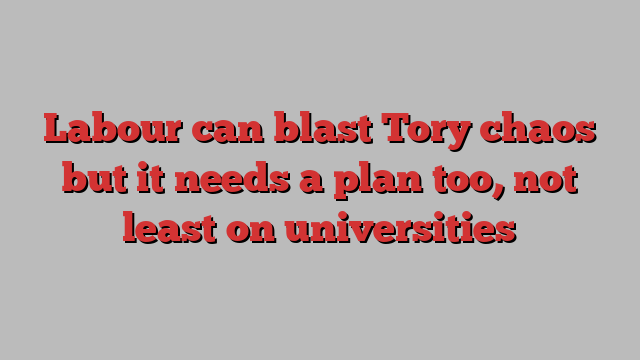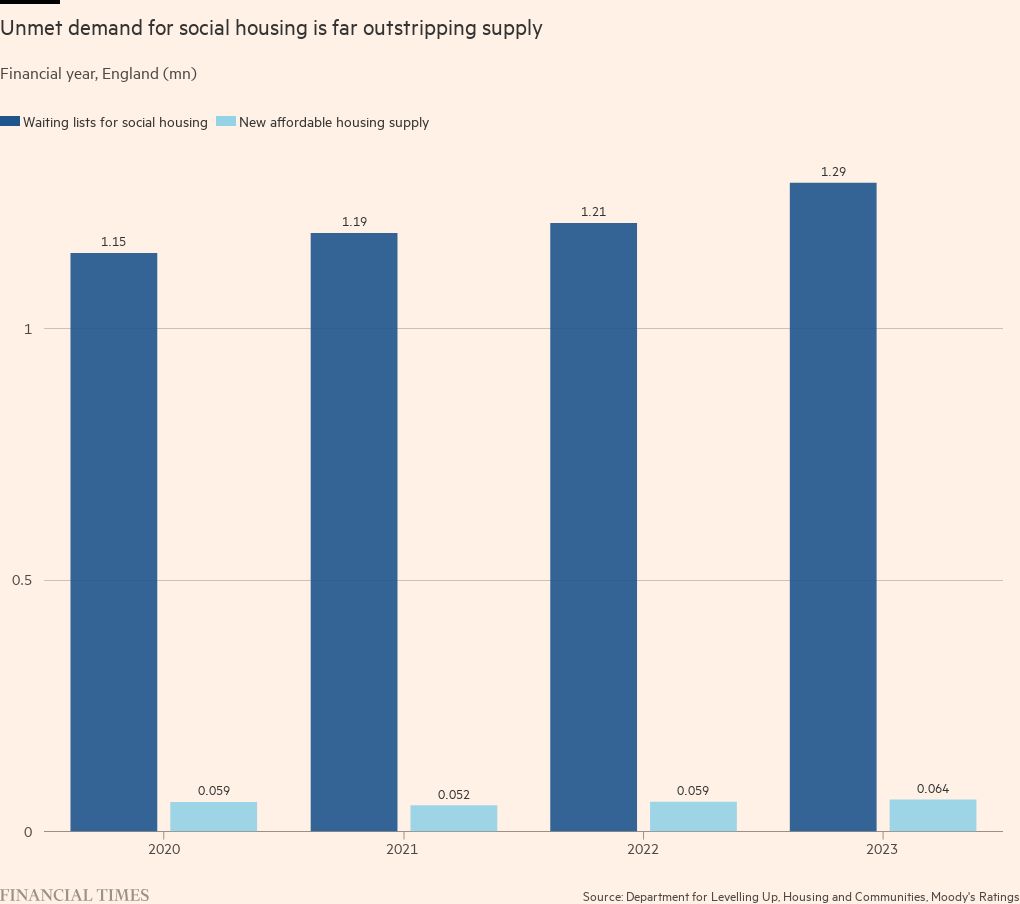
This article is an onsite version of our The State of Britain newsletter. Premium subscribers can sign up here to get the newsletter delivered every week. Standard subscribers can upgrade to Premium here, or explore all FT newsletters
Good afternoon. First things first, thanks for all your messages on what we should be looking at, from infrastructure and skills deficits, to more instructive comparisons between the UK and comparable economies in Europe. Duly noted.
Secondly, an apology for overlooking Wales. An oversight on my part, but something that Jen Williams has in hand. For the record, I visited Anglesey last month (picked this week as site for a new nuclear power station at Wylfa) to write this piece on freeports, industrial strategy and green energy. All subjects to which we’ll return.
Now down to business, which this week, is obviously, the “Sunak surprise”. It’s a feature, but also a bug of his administration, that there is a very tight circle of trust around the PM, which meant that the decision to call the election caught most of his party and cabinet on the hop.
It also leads to some very odd politics, which is what I wanted to address this week in the context of the recent row over the graduate visa route, and whether it should be further restricted in a bid to reduce legal net migration.
It’s a story that is revealing on three levels: the political cack handedness of Sunak’s Downing Street machine; the cost of policy flip-flops during the five years of this parliament; and — looking beyond July — the lack of a plan from either party to fix the problem.
First, the politics. Sunak has been under pressure to cut legal net migration. That was why the Migration Advisory Committee was asked in March by the home secretary James Cleverly to investigate whether the graduate visa route should be further restricted.
When it reported back, the MAC found — to Number 10’s annoyance — that the route (which allows overseas students to stay on for two years after graduation) was not being abused. Overseas graduates pay their way and earn at roughly the same level as UK ones.
It also observed that the decision to remove the right of foreign graduates to bring family members was already having a strong downward pressure on applications to study in the UK and, therefore, net migration.
At the same time, that downturn in lucrative foreign postgraduates is squeezing university finances, with more than 50 institutions making job cuts. As the sector regulator, the Office for Students, warned in its annual report into university finances, some are now at real risk of closure.
But rather than accept the MAC findings, or finding another target, Sunak’s Number 10 doubled down. It briefed that it was toying with cutting the graduate route anyway, only to back down under a barrage of criticism from university bosses, industry and half the cabinet.
The net result was further policy uncertainty and the impression that Sunak is politically weak, pinballing between the right and centrist wings of his divided party. Even those who don’t follow the detail get a sense of a leader not fully in control.
Second, and more importantly, the entire episode is a reminder of the policy uncertainty of the last five years of Conservative government. Sir Keir Starmer referred three times to Tory “chaos” in his election opener. It is going to be a theme of this election.
We can argue about the costs and consequences of universities embarking on a pell-mell expansion of international postgraduates after 2019, but the fact is, they did so at the behest of the Conservative party!
In 2019 a Tory government launched the International Education Strategy which urged the HE sector to go forth and export, with an ambition to attract 600,000 foreign students by 2030 worth £35bn to the economy. This they quickly did, in the vanguard of “Global Britain”.
As the strategy tagline proclaimed: “global potential, global growth”. Until it suddenly wasn’t.
When migration became politically toxic again in late 2022 after numbers hit record levels, Sunak slammed the brakes on, sending out hostile messages to overseas markets that had only recently rushed to embrace the dream of a British education.
That’s not to say the overseas HE expansion did not lead to imperfections — there is evidence that standards have been diluted in the rush to put bums on seats — but rather than address those narrow issues Sunak overreacted, driven by narrow domestic political considerations.
The record of the past five years is filled with other examples of confused policymaking: from introducing post-Brexit border checks (delayed five times) to promising to rip up all EU-legacy law (another hill Sunak marched up only to climbdown) and ripping up green targets and the northern legs of High Speed 2 to Manchester (announced in Manchester).
It’s why economists and investors talk of a potential “dullness dividend” from a more stable government and why Starmer talks of a “10-year plan” to revive Britain. Which is to say there are benefits that come from strategic thinking and persistent, joined-up policymaking.
This brings me to the third and most sorrowful leg of this story, which is that while Labour might have plenty of good ammunition for its “Tory chaos” narrative, the truth is that on many issues, including universities, it doesn’t have a coherent plan either.
As the MAC pointed out, the reason UK universities are so desperately dependent on overseas recruitment is that the £9,250 tuition fee has been frozen for a decade and research funding grants don’t cover the cost of research.
It’s a structural financial issue, which Labour, as much as the Conservatives, apparently has no clear plan to solve, at least not a plan that it’s prepared to share with voters ahead of polling day.
Either fees need to be allowed to rise with inflation or central government has to increase teaching and research grants — something it could arguably afford to do having reduced its exposure to unpaid student loans by changing the student loan repayment system last year.
Those reforms will save the government nearly £3bn on each annual intake of students, according to analysis by London Economics, savings that were gobbled up by the exchequer and not passed on to the sector.
Labour doesn’t want to touch the tuition fee issue for obvious reasons during an election campaign, but if it wins and the MAC’s warning of universities failing financially come true, it won’t be able to duck the issue for long when in office.
At the same time, if Labour is prepared to allow the university sector to shrink — and it has been surprisingly quiet in countering the Tory narrative about the “worth” of three-year degrees — it will have to answer another question: what is the alternative provision for those at the bottom end of the academic spectrum where the cuts will land hardest?
When it comes to higher education policy for Labour, campaigning will be the easy part.
Britain by Numbers

This week’s chart comes from the Moody’s rating agency. It has put out a gloomy prognosis for the UK’s social housing sector, which is seeing sharp falls in building plans as a result of the higher costs of construction and debt servicing.
It notes that social housing providers in the UK had reduced their development targets for the next five years by 16 per cent in 2023 compared to a year earlier, and warns that the lack of supply is going to put further strain on local authorities that have to pick up the slack.
Moody’s adds that costs to the local council of finding temporary accommodation for local authorities has increased by 25 per cent to £1.6bn in the first three quarters of the 2023-2024 tax year, compared to a year earlier.
“The reduction in development programmes will influence housing supply, intensifying the structural imbalance between supply and demand. As of 2023, in England, nearly 1.3 million households are on the waiting list for a social unit,” the report added.
The agency also points to lessons from abroad: the same cost-pressures have had much less impact on Dutch social housing providers because their borrowing is underwritten by the government, which helps to insulate them from interest rate rises.
They also get preferential access to land at below-market rates from municipalities, something that the Berlin government does for social housing providers, as well as offering reduced interest rate loans.
Labour has pledged to build 300,000 new homes a year, and a clutch of ‘New Towns’ with 40 per cent affordable housing, but it’s starting from a very difficult place, particularly in London, where new social housing starts were down 90 per cent in the year to May.
Affordable housing is often seen purely as a “social” issue, but it might get more oomph in the political agenda if it was reframed as a fundamentally economic one.
Paul Cheshire, the LSE’s emeritus professor of economic geography, sets out why in his essay on Labour’s planning reforms in the Social Market Foundation’s collection of essays on Labour and the economy.
He writes that less affordable housing “increases the supply price of labour in our most productive economies” as workers face longer commutes as a result of seeking affordable housing further from their workplaces.
The cost of this hasn’t been quantified in the UK, but Cheshire cites research in the US which modelled the impact of relaxing land restrictions (the equivalent of UK greenbelt) in the New York and Bay areas to median levels.
It found average wages were boosted by $3,685 over the period 1964 to 2009. The case for more ambition on social housing should be argued as much from an economic perspective as a social justice one.
The State of Britain is edited today by Georgina Quach. Premium subscribers can sign up here to have it delivered straight to their inbox every Thursday afternoon. Or you can take out a Premium subscription here. Read earlier editions of the newsletter here.
Recommended newsletters for you
Inside Politics — Follow what you need to know in UK politics. Sign up here
Trade Secrets — A must-read on the changing face of international trade and globalisation. Sign up here